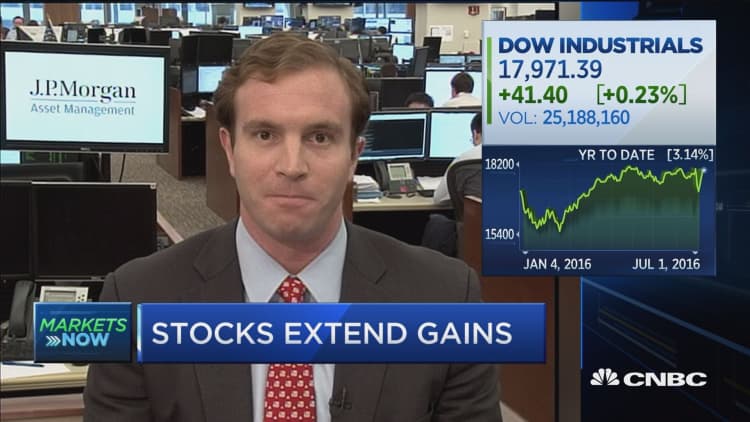
The Federal Reserve could very well increase rates once this year, even though the market is not expecting it, David Lebovitz, global market strategist at JPMorgan Asset Management, said Friday.
"I'm not exactly sure the market is getting this right. The first-quarter growth numbers, they were weak. We saw GDP revised down to 1 percent, which is half of the average growth rate we've seen over the course of the recovery," Lebovitz told CNBC's "Squawk Alley."
"But when we think about what's going to happen in June, we expect a nice little bounce back. When you look at the activity data for the second quarter, it really has held up quite well. Obviously, there are still a lot of questions out there, as to how what happened in the U.K. and Europe will affect the U.S.," he said.
Market expectations for a Fed rate hike in 2016 went out the window after the United Kingdom shocked the world and voted in favor of leaving the EU.
"The markets have basically declared the Fed cycle over. You're starting to see some rate hikes priced in for 2018; that's like dog years, nobody can look that far," Jurrien Timmer, director of global macro at Fidelity Investments, told CNBC's "Squawk on the Street."
U.S. equities began the second half of the year virtually flat for 2016, as concerns about earnings growth lingered.
"If you think the U.S. markets are stretched, the U.K. markets and the European markets are even more stretched. You look at where the S&P is trading right now, it's 19.3 times [price-to-earnings], I'd say its fair value is somewhere [close to] 16.5," said Gina Sanchez, CEO at Chantico Global.
"You look at the U.K., it's trading at 46 times versus a fair value of 20. That's a huge difference," she said. "While I agree that there should be some caution with U.S. equities, and you need to be high up the quality curve, I would say the bet here is really to be overweight the U.S. relative to the U.K. and Europe."


